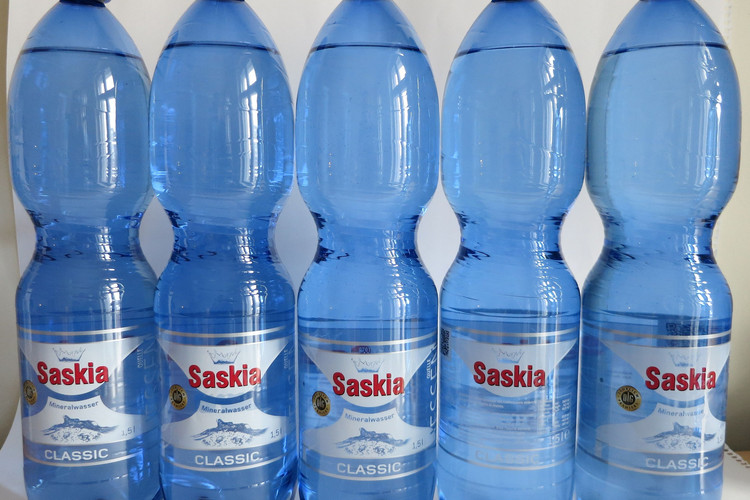Pressemitteilung
Single Use Plastics Directive: NGOs call on Commission and EU countries to resist attempts to undermine separate collection of plastic bottles
Berlin/Brussels, 15.5.2020: European Environmental NGOs are expressing their concern about ongoing discussions on the implementation of the separate collection of single-use plastic bottles as regulated by the EU Single Use Plastics Directive (SUPD). The Directive ((EU) 2019/904) requires Member States to ensure that 90 percent of plastic bottles be collected as a separate waste stream by 2029 at the latest. In Austria and the Czech Republic, however, there are now discussions suggesting that this separate collection target could be met by including bottles from post-sorted residual waste. Deutsche Umwelthilfe (Environmental Action Germany, DUH) and the Rethink Plastic alliance (RPa), both members of the global Break Free from Plastic (BFFP) movement, warn that misguided interpretation of the SUPD could dramatically undermine its main objectives, that is to reduce pollution from single-use plastic and support the transition towards a circular economy. The introduction of deposit return systems (DRS) can largely contribute to achieving these objectives.
"Plastic bottles are among the top items polluting European water bodies and beaches. This is why the introduction of deposit return systems all over Europe is particularly important. In Germany, the deposit on single-use beverage containers has had a drastic anti-littering effect. That is reflected by the very high collection rate of 98.5 percent. If plastic bottles were still collected via curbside collection, the collection rate would be considerably lower. In addition, pulling plastic bottles out of mixed packaging or residual waste would jeopardise all efforts to enable the desired bottle-to-bottle recycling. The required material quality cannot be achieved with those modes of collection, due to impurities and adhesions. It is alarming that certain stakeholder groups, for example in Austria, are trying to sabotage this step towards more high-quality recycling in Europe," says DUH Deputy Executive Director Barbara Metz.
Member States will only achieve the recycled content targets set in the Directive, if plastic bottles are collected as a clean, separate waste stream. By 2025, single-use PET bottles have to contain a minimum recycled content of 25 percent, and by 2030, all single-use plastic bottles must contain a minimum recycled content of 30 percent.
With the Plastic Strategy and the Single Use Plastics Directive, the EU has made an unprecedented commitment to reduce waste and pollution and protect our environment. DUH and the Rethink Plastic alliance therefore call on national governments to transpose and implement the legislation as it is intended, to reach maximum positive environmental impact.
“The European Commission and EU governments must resist attempts made by some interest groups to water down the Single Use Plastics Directive. Citizens across Europe have praised the new measures on reducing single-use plastics and have shown support for Deposit return systems, for recycling but also for reuse. DRS have successfully existed for many years in some EU countries like Germany and now others, such as Portugal, Latvia and Romania, are setting the course for their implementation, since DRS is the most effective way to ensure high collection of beverage containers and reduce pollution,” says Delphine Lévi Alvarès, Coordinator of the Rethink Plastic alliance and BFFP Europe.
In addition to their contribution to pollution reduction and meeting the targets laid down in the Single Use Plastics Directive, deposit return systems for single-use beverage containers have yet another crucial advantage: they can serve as an intermediate step towards more refillable beverage containers. Firstly, deposit systems for single-use and refillable beverage containers largely rely on the same infrastructure. Secondly, consumers are more likely to choose refillables over single-use beverage containers if they have to return both types of packaging to the same return points. Compared to single-use beverage packaging, refillables cause less greenhouse gas emissions, protect resources and support the local economy.
Further information:
- Position Paper on the interpretation of separate collection targets by Reloop
- DRS Manifesto by European NGOs
Contact:
Barbara Metz, Deputy Executive Director, DUH
+49 (0) 170 7686923, metz@duh.de
Henriette Schneider, Project Manager, DUH
+49 (0) 30 2400867-464, h.schneider@duh.de
Press Offices:
Marlen Bachmann, Thomas Grafe, Press Officers, DUH
+49 (0) 30 2400867-20, presse@duh.de
Agnese Marcon, Communications Coordinator, Rethink Plastic alliance
+32 (0) 456 078 038, news@rethinkplasticalliance.eu
Deutsche Umwelthilfe (Environmental Action Germany, DUH) is a recognised environmental and consumer protection organisation that campaigns at national and EU level. The organisation is engaged in energy and climate protection, circular economy, traffic and clean air, nature conservation, urban environmental protection and consumer protection. DUH is renowned for its role in uncovering the Diesel Scandal and its successful campaign for a deposit system for one-way beverage containers and a quantitative target for refillable beverage containers in Germany.
Rethink Plastic is an alliance of leading European NGOs, representing thousands of active groups, supporters and citizens in every EU Member State. It is part of the Break Free From Plastic movement.
Break Free From Plastic is a global movement envisioning a future free from plastic pollution. Since its launch in September 2016, nearly 1,900 organizations from across the world have joined the movement to demand massive reductions in single-use plastics and to push for lasting solutions to the plastic pollution crisis. These organisations share the common values of environmental protection and social justice, which guide their work at the community level and represent a global, unified vision.


